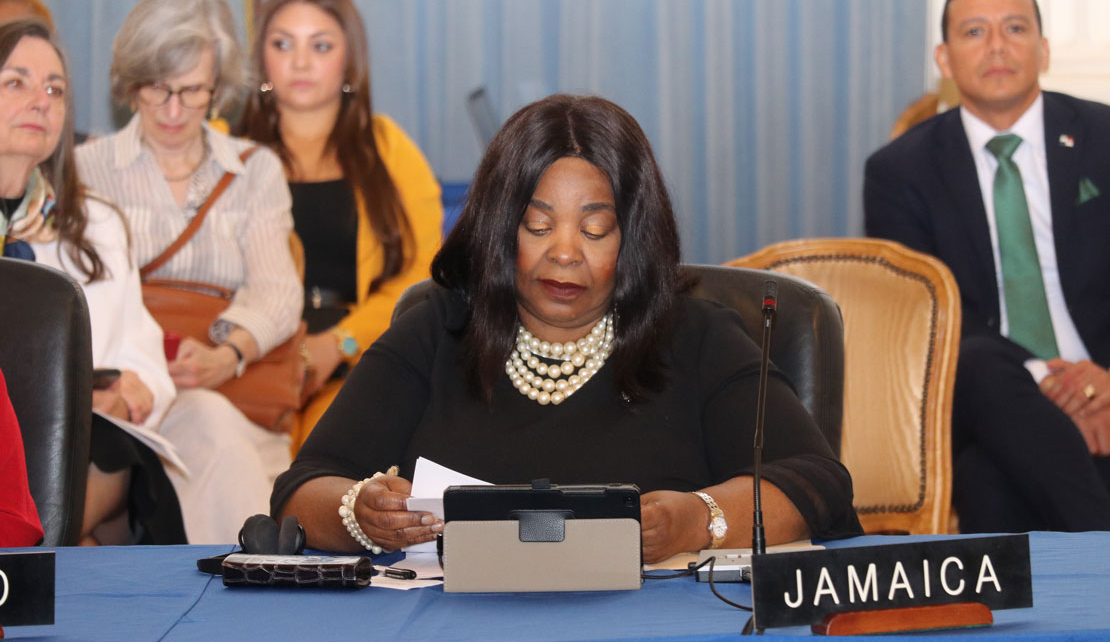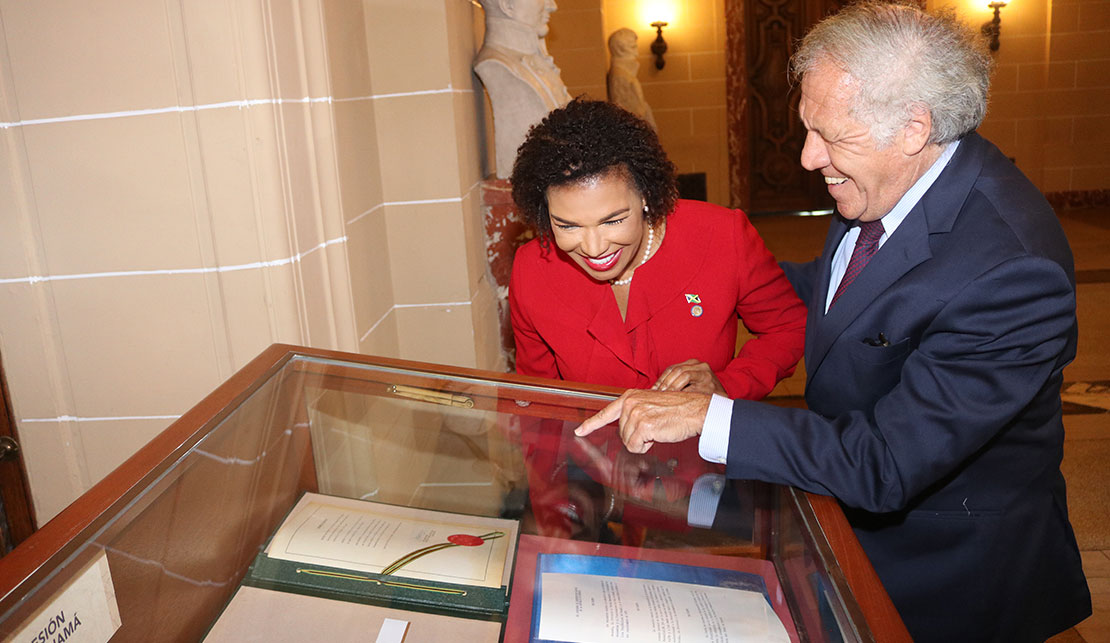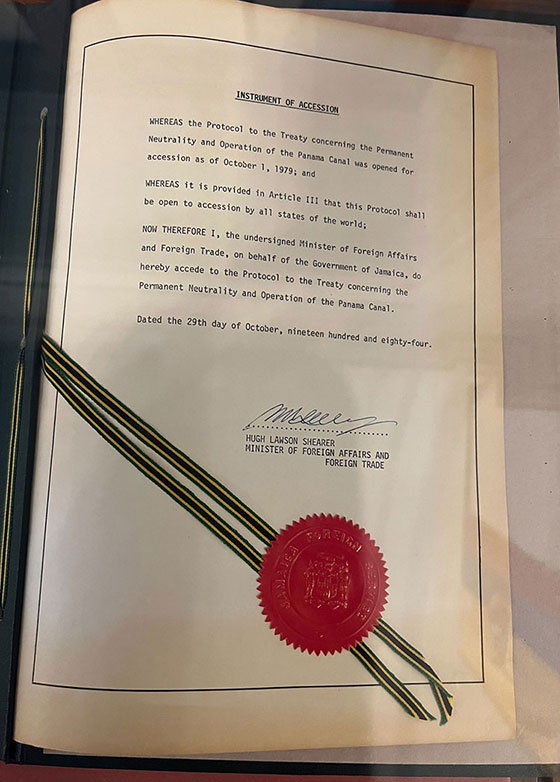JAMAICANS who helped to build the Panamanian Railroad and the Panama Canal hailed for their Pioneering Spirit

WASHINGTON, DC, September 8, 2023 - Jamaicans have been hailed for their contribution to the development of Panama in the early 19th and 20th centuries and in particular to the building of the Panama Railroad; the Panama Canal as well as the building of the Jamaica economy through their remittances to the island over the years.

In a statement delivered to the special session by Jamaica’s Alternate Representative to the OAS Ms. Delita McCullum, it was noted that “Work on the Panama Canal provided an alternative for Jamaicans at a time when poor socioeconomic conditions persisted in the island.
“Remittances sent by Jamaican workers in Panama helped to provide a stable life and shelter for relatives at home in Jamaica. Their letters also formed a springboard of hope for a new generation of adventurers to seek a better life abroad.”
“The harsh living conditions and social segregation triggered Jamaicans among other Afro-Caribbean nationals, who were the bulk of the workforce, to organise labour strikes to fight for better compensation.
“This also saw the community denouncing racism and racial discrimination, through membership in transnational black solidarity movements like the Universal Negro Improvement Association (UNIA) that was founded by Marcus Garvey in Jamaica in 1914, who later became Jamaica’s first national hero,” the statement said.

According to the Jamaican statement, “In 1920, six years after the completion of the Canal, Panamanian authorities estimated that there were 70,000 West Indians in Panama. It is recorded that under French control of the canal project 12,875 labourers were on the payrolls of which 10,844 were British West Indians: 9,005 Jamaicans, 1,344 Barbadians and 495 St. Lucians. In 2018, data from the Afro-Caribbean community in Panama indicated that there were at least 180,000 people of Jamaican descent residing in the country (out of a total national population of 4 million).”
The more significant legacy of the English-speaking West Indians migrants to Panama, “was their contribution to education, religion and businesses in the areas they lived. It is recorded that during the construction of the canal, West Indian labourers operated small schools. Some were pioneer entrepreneurs establishing many private schools in Panama and Colón. These schools were eventually used by immigrants and natives.”
The Jamaican government in its statement has welcomed the initiative by the Government of Panama to update the national registry of persons who have contributed to the construction of the Panama Canal.
It has also recognised the vast number of Prominent Jamaicans connected to the period of the building of the Panama Canal, and in particular legendary Nurse Mary Secole, Cricketer George Headley, Rastafari pioneer Leonard Howell, Journalist Evon Blake and Sculptor Alvin Marriot.
It is against this background of the pioneering migratory spirit of Jamaicans from the early years the statement pointed out, that Jamaica’s relations with its diaspora has long remained essential to the developmental capacities of Jamaica.
-30-

 En
En  Ar
Ar